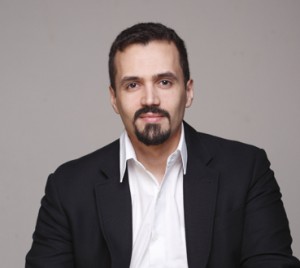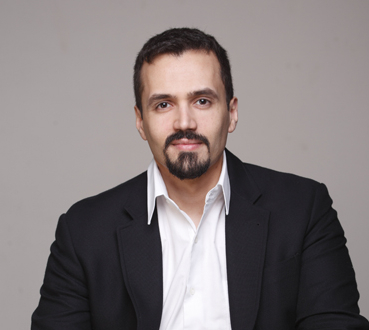
A farce. That is all I can say about the NGO trial verdict that was delivered on 4 June in post-Mubarak, present-Morsi, still-not-revolutionary Egypt.
Here is the verdict, plain and simple. Guilty. Didn’t hear that right? Guilty. Every single defendant on trial in the NGO court case that has been dragging on for more than a year has been found guilty. No one is innocent. Not on a technicality, not on the facts; nothing. They’re all guilty.
The verdict? Well, for those who left the country when this all began, they’ve been sentenced to five years in jail, with a fine of EGP 1,000. They’re being described as those who “fled”, a peculiar appellation considering they were escorted to the airport by Egyptian authorities. But never mind.
For those who remained in the country, and were charged as “managers”, they have received a sentence of two years, and a fine of EGP 1,000. These include Robert Becker, the only American who decided to remain in Egypt to stand trial with his former National Democratic Institute (NDI) colleagues rather than leave. I write “former”, because the NDI with which he was associated fired him for staying. I wonder if I ought to put some sort of proviso around the word “American” as well, considering that the US embassy in Egypt refused to meet with him since this all started. Personally, I prefer just calling him the “honourable Robert Becker”, because he could have left. He has a life out of Egypt but he stayed. As for the US embassy…Daily News Egypt is a PG-rated newspaper.
For the remaining defendants, who are all Egyptians who attended the trial proceedings, they have received one-year sentences and a fine of EGP 1,000. Those sentences are suspended for three years with the surety that if those convicted engage in “similar activities”, the sentence will be immediately implemented. “Similar activities” are not particularly well-defined, but what else is new?
What happened? Well, that depends on who you want to ask. There will be some that will want to claim that this is simply the legal system at work and that the legal system simply implemented an existing, awful NGO law that is the legacy of the Mubarak years. Others will claim that the new, draft NGO law is better, while others still will claim the new, draft NGO law is worse. Even others still will defend the verdict on the basis that the NGO workers were essentially spies working for Egypt’s enemies. And finally, there will be those that will defend the verdict, saying: “Your intentions don’t matter, good or bad; if you want to play in our country, play by our rules.”
While others discuss law, there will be those that realise that law in this case is a function of power. It is not a check on power; it is a function of it. That is Egypt, where the law can be used and abused for all sorts of reasons, and very often not to do with legal arguments. In this case, Heba Morayef’s Human Rights Watch said it well: the “NGO workers will pay the price for a bilateral spat between Faiza Abul Naga and Egyptian security agencies, fed by xenophobia and paranoia. No NGO worker should ever be imprisoned for just working for an NGO/INGO. The Egyptian government does not seem to realise how repressive this makes it look.”
What happens next? Well, we shall see. All NGOs in Egypt, and any abroad that want to act in Egypt, are going to be very nervous about doing any work in the country because they will interpret this ruling as a message to the entire sector. Play by the rules, or don’t play by the rules: but if someone decides you don’t play by the rules, be forewarned that your staff may be treated as pawns in a game that has very little to do with them or what they actually do.
There will be calls for blame, and there’s much to go around. Many different parties should answer for their role in this debacle, but they won’t. No one will hold to account the American administration for failing to act appropriately; no one will hold to account the leadership of the NGOs involved for failing to act properly for their staff (and yes, they were guilty of recklessness, which isn’t a crime but still significant); no one will investigate the behind-the-scenes clashes between different parts of the Egyptian state. No one will answer for their role, and in the meantime, the staff members will pay the price.
Is the Muslim Brotherhood at fault here? They’re not responsible for the law that this case used, and they’re not responsible for the verdict. Indeed, the leadership might have been hoping that the verdict would be far lighter to avoid the inevitable hassle that is now going to come from international media and foreign administrations. But there is one person who is able to fix this, and it would even be to his own benefit. The Egyptian president is already facing a great deal of pressure over the new draft NGO law; he could deflect a lot of the pressure if he pardoned the defendants. It would be the smart, legal thing to do, but as it would open him to populist criticism, no one ought to hold their breaths. The irony of feloul and supporters of the government agreeing; albeit on accusations of “foreign intervention”.
In the meantime, as I sit down and write this, some very good people are being left out in the cold; Robert Becker, Hafsa Halawa, Rawda Saeed Ali, Christina Baade, Yehia Ghanem, and others. As we all ponder the geopolitics of all of this, their lives are deeply affected. They all believe in a better Egypt, and in the revolution of the 25 January. As for those who would like to see them behind bars – well, like I said, Daily News Egypt is a PG-rated newspaper.




